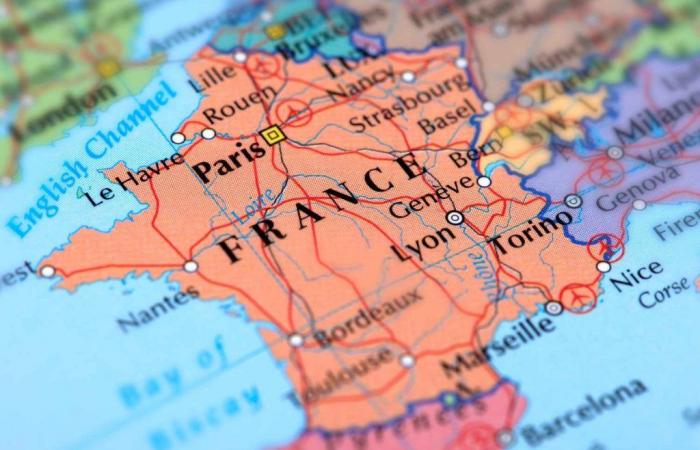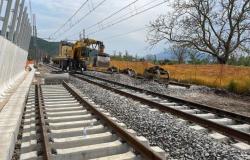Jean-Philippe Tanguy, head of the economic and energy platform of Rassemblement National, declared that “we do not want to abandon the plan to achieve carbon neutrality by 2050, we want to achieve it by other means”
France’s plans to expand renewable energy and abandon fossil fuels are threatened by Marine Le Pen’s far-right nationalist “Rassemblement National” party, which within weeks could win the most seats in elections and abolish key environmental policies .
Capitalizing on some voters’ anger that climate policies are affecting their wallets and freedom of choice, Rassemblement National has pledged to review the main planks of the European Union’s historic Green Deal.
THE EFFECTS OF A LE PEN VICTORY ON THE ENERGY SECTOR IN FRANCE
A party victory could threaten utilities, renewable energy developers, turbine makers and car battery makers, putting France on a collision course over its green obligations to EU partners. “We want to stop punitive green policies,” Jean-Philippe Tanguy, head of Rassemblement National’s economic and energy platform, said in an interview, adding that “we don’t want to abandon the plan to achieve carbon neutrality by 2050, we want to achieve it with other means”.
If it forms the new government – Francois De Beaupuy and Nayla Razzouk write in Bloomberg – Rassemblement National will stop the development of wind energy, abandon the ban on the sale of petrol and diesel cars scheduled for 2035, loosen the requirements for home renovation and will curb plans to exclude the most polluting vehicles from big cities. It will instead focus on building new nuclear reactors and supporting the development of clean fuels, such as hydrogen.
A CHANGE IN FRANCE’S ENERGY POLICIES
This policy program would represent a sea change in the energy priorities of the European Union’s second largest economy. French President Emmanuel Macron – whose Renaissance party is currently in third place in the latest polls – had outlined an ambitious roadmap on everything from wind, solar and nuclear energy to electric cars, building renovations and green gases -, but now all this could change.
“All businesses that are subsidized and have an impact on populations, such as wind energy, will be in grave danger, and this will slow down the pace of new projects,” said Nicolas Rochon, chief executive of fund manager RGreen Invest. Investors, already spooked by the broader economic impact of a possible Rassemblement National victory, sold off French energy stocks. Electricity and gas company Engie and renewable energy developer Voltalia have lost more than most other shares traded in Paris in recent weeks.
THE STRATEGIES OF POPULIST PARTIES IN FRANCE AND OTHER COUNTRIES
Populist politicians around the world – from Donald Trump in the US to Nigel Farage in the UK – have vowed to roll back low-carbon policies and downplay climate change ahead of national elections. The strategy appears to be working, with green political parties suffering heavy losses in the European elections in early June.
In France, Le Pen’s party has gained greater popularity in the wake of voter concerns over soaring gas and electricity bills resulting from Russia’s invasion of Ukraine. Rassemblement National has pledged to reduce VAT on gasoline, natural gas, heating fuel and electricity. Tanguy explained that the cost, estimated at 14 billion euros, would be partly financed by a temporary tax on electricity companies’ extra profits and by lower subsidies for renewable energy.
MEDEF: “FAR-RIGHT ELECTORAL PROGRAMS DANGER TO THE ECONOMY”
The influential French business lobby Medef has criticized the election programs of both the far right and an alliance of left-wing parties, saying they pose a danger to the economy. According to the Institut Montaigne think tank, implementing Le Pen’s plans will cost around 100 billion euros. Bloomberg Economics predicts that whoever wins the election will be more likely to borrow, and that Rassemblement National’s plans could raise the debt-to-GDP ratio to 121.5% in 2027, from 110.6% in 2023. , violating European Union tax legislation. Yesterday, in a meeting with Medef, the president of Rassemblement National, Jordan Bardella, contested the estimate of 100 billion euros, stating that the party’s measures “will be distributed over time”, depending on the financial and economic situation.
THE PROSPECTS FOR WIND ENERGY
The biggest environmental policy change resulting from a Rassemblement National victory would concern wind energy, which accounts for about 10% of French electricity production. Macron plans to secure financial support for a major expansion, adding around 1.5 GW of onshore wind projects per year, and to launch tenders for nearly 16 GW of offshore turbines by the end of 2026.
According to Tanguy, France does not need more wind energy: “the energy mix is already almost entirely carbon-free, with around 90% coming from nuclear, hydroelectric, wind and solar.” Le Pen’s party will “end support for new solar park projects using Chinese panels, instead supporting the construction of photovoltaic equipment in France,” Tanguy explained. Such a move could significantly slow development, because Europe is unlikely to produce solar panels anymore, and plans to build two factories in France have yet to get off the ground.
THE IMPLICATIONS ON NUCLEAR ENERGY
On nuclear power, again according to Tanguy, Rassemblement National would support the construction of 20 reactors by 2045, going beyond the 6-14 new plants that Macron would like EDF to build. The cost is partly offset by savings on investments in the electricity grid, thanks to the slowdown in new connections to the grid for renewable energy.
Some investors, such as Thierry Deau, chief executive of Meridiam – which has more than $22 billion invested in infrastructure assets around the world – are optimistic that the expansion of clean energy will continue in France. “I don’t believe in a slowdown in investment in the energy transition,” Deau said in an interview. His fund has just decided to reinvest in Allego NV, a company that builds car charging networks in France and other European countries. “I’m not worried about the European Green Deal,” Deau added.
THE DEVELOPMENT OF CLEAN ENERGY IN EUROPEAN COUNTRIES
Clean energy development “has thrived under far-right governments in Italy, Hungary and Poland,” Rochon said. However, “RGreen is suspending all investments heavily exposed to France for 3 months.” Rassemblement National will need to win at least 289 seats at the end of the double-round elections on June 30 and July 7, to gain a majority in the National Assembly, a prerequisite set by Bardella to become prime minister. In the previous parliament the party had 88 seats.
Given the structure of French elections, predicting the final seat count before the election begins is difficult. In the first round, the polls showed Rassemblement National in the lead with 32.7% of voting intentions. A left-wing alliance called the New Popular Front was second with 26.3%, while Emmanuel Macron’s Renaissance party and its allies came in third.






